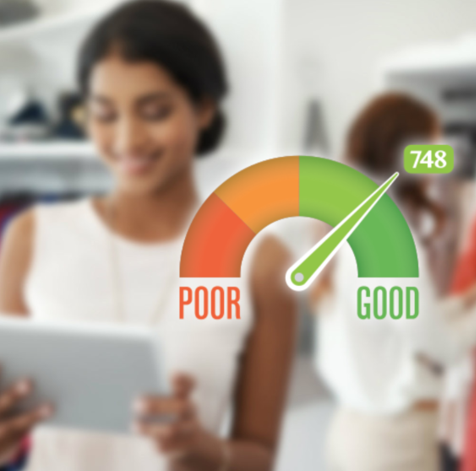
What is the first thing that comes to mind when you encounter the word SMARTSCORE?
If you're thinking along the lines of grades then you're very close to the answer. SMARTSCORES are like grades.
Think of your CGPA in the university. That's exactly how a SMARTSCORE works except that this time your SMARTSCORE is nor just about academic success but is a measure of how much control you have over your financial future.
A SMARTSCORE is a 3-digit number in your credit report that tells lenders your potential credit risk and ability to repay loans.
Your SMARTScore is a measure of how creditworthy you are and how big of a risk you pose to any creditors who lend you money. Not surprisingly then, your score is based on what previous information is available.
Every time you do anything that involves borrowing money, that information is passed on to the credit bureaus and goes into your credit report and culminates into your SMARTScore.
That magic number tells lenders your potential credit risk and ability to repay loans.SMARTScores consider various factors, such as payment history and length of credit history from your current and past credit accounts..
Just like a grade, you are in control of your SMARTScore.
Your SMARTScore can significantly affect your financial life. It plays a key role in a lender’s decision to offer you credit. For example, people with crscores below 640 are generally considered to be subprime borrowers. Lending institutions often charge interest on subprime mortgages at a rate higher than a conventional mortgage to compensate themselves for carrying more risk. They may also require a shorter repayment term
A score of 700 or higher is generally considered good and may result in a borrower receiving a lower interest rate, which results in their paying less money in interest over the life of the loan. Scores greater than 800 are considered excellent. While every creditor defines its own ranges for credit scores, the score range looks like this
Excellent: 800–850
Very Good: 740–799
Good: 670–739
Fair: 580–669
Poor: 300–579
A person’s score also may determine the size of an initial deposit required to obtain a smartphone, cable service, or utilities, or to rent an apartment. And lenders frequently review borrowers’ scores, especially when deciding whether to change an interest rate or credit limit
Since SMARTScores have become such an integral part of our financial lives, it pays to keep track of yours and understand how your actions affect the numbers. You can build, defend and take advantage of great credit regardless of your age or income. Once your scores near 700 or so, you’re considered a good risk. When they’re over 760, you’re golden. You should expect the best rates and terms lenders have to offer, since they’ll be competing hard for your business.You can leverage great scores into great deals — on loans, credit cards, insurance premiums, apartments and cell phone plans. Bad scores can hammer you into missing out or paying more.
With all the money you save as a result of an excellent SMARTScore, you can make progress on important financial goals such as saving for retirement, boosting your emergency fund or getting out of debt faster.
That’s the real power of great scores. Instead of begging for loans, paying too much and trying to make do with what’s left over, you’ll finally have some options to get ahead.